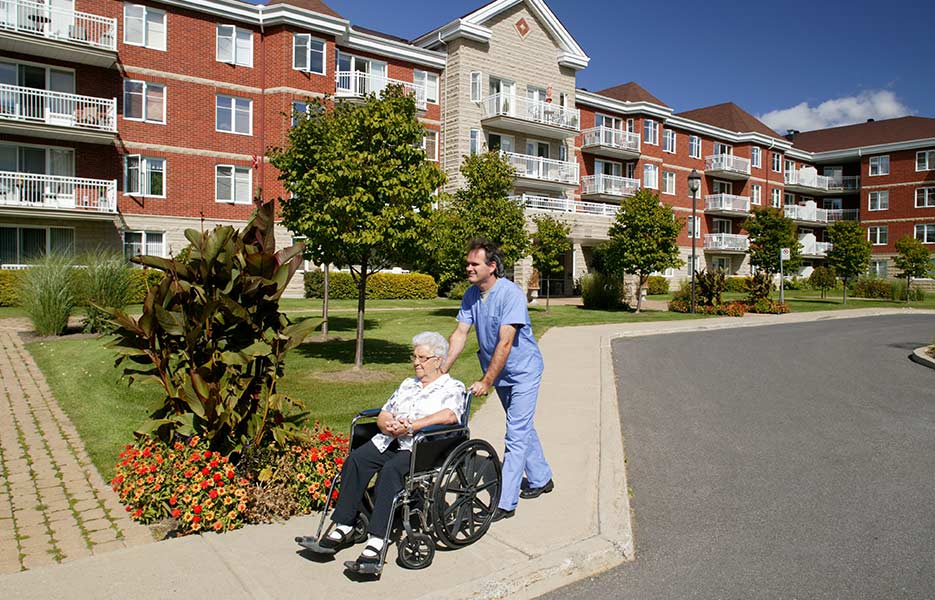When it comes to planning where you may wish to reside following your retirement and into your later years, there are many things to take into consideration. The options available to you are better than they were, say, 30 years ago. You may have noticed that New Zealand has, in the past decade or so, seen a big increase in the construction of large, modern retirement villages. Some of these villages also include dementia care units which means that if you develop dementia following your move to a village, you can remain at the village with excellent care.
Another option is to remain in your family home with assistance from care agencies which may provide as little or as much care as you may need.
You may wish to consider living with your family as this can work extremely well. You should be aware, however, that this should be well thought-through prior to putting this plan into action. Legal advice should also be sought in this situation as these types of arrangements can turn sour if all parties have different views on how this is going to work, both now and in the future.
An example of where this did not turn out well was in a recent article where a 66-year-old woman had invested $100,000 in a Hawkes Bay home to share with her son and daughter-in-law. Unfortunately, relationships broke down and she was physically threatened, accused of stealing, and locked out of the home. With the benefit of hindsight, this family arrangement looks like it was an inappropriate option for her. What other options might there have been and what could she have done to avoid the situation?
Here at Gillespie Young Watson, our specialist ElderLaw team have had the pleasure to assist retirees in finding their preferred retirement accommodation, as well as how to protect their own interests – whether personal or financial interests. Here are some other options retirees, including the Hawkes Bay mother, can consider when planning their retirement:
1. Living in a retirement village
Buying a villa or an apartment in a retirement village can come with a steep price. However, most people moving into a retirement village have a family home to sell – the sale proceeds of which are often sufficient to buy into accommodation at a retirement village. It is also important to note that many villages now have a minimum age requirement of 70 years, and it is mandatory to obtain independent legal advice on the legal documentation before entering a retirement village, which can help protect your interests.
2. The New Zealand superannuation
If the woman in the article had been renting, rather than owning her previous home, then capital of $100,000 and income from that capital, together with her New Zealand superannuation and a living alone supplement may have enabled her to remain in her home and pay for some help in future years.
The New Zealand superannuation (NZ Super) is the government pension paid to Kiwis over 65. Any eligible New Zealander receives this regardless of how much they earn through paid work, savings and investments, what other assets they own or what taxes they have paid.
3. Getting a family agreement
The woman’s choice of contributing $100,000 toward the purchase of a home with her family may appear to have been a good one at the time. To protect her right to occupy the home and her financial contribution, she should have signed a legal document with her family members, often called a family agreement.
The family agreement could have covered what parts of the home she could occupy, which might be a granny flat constructed or modified to suit from her financial contribution. The agreement could also have included her ownership interest in the home, calculated by the difference between her contribution and the value of the home according to a registered valuation. The separate ownership shares should be recorded on the legal title to the home as tenants in common in unequal shares.
Outgoings on the home such as rates, power, insurance, telephone bills, and Internet charges can be apportioned based on ownership shares. The agreement could also cover sharing of household expenses, payment for care services which family members may be providing and what is to happen if hospital level or dementia care is necessary rather than remaining in the home.
These agreements can also provide for an independent person to monitor the agreement and deal with dispute resolution. An independent person identified in the agreement may have been particularly helpful to resolve the problems which arose with the woman who had been victimised, rather than having to contact the police.
4. Setting up an Enduring Power of Attorney (EPA)
Enduring powers of attorney enable an entrusted person of your choice to act on your behalf regarding:
- Property
- Personal care and welfare matters.
An EPA would have been a particularly important document in the Hawkes Bay scenario. The woman’s attorney for property – provided the power of attorney took effect immediately – could have used the powers provided to the attorney to negotiate with the family members who owned the home to resolve issues.
Seek Professional Legal Help from Gillespie Young Watson’s ElderLaw Specialists
Whatever option you choose for your retirement accommodation, you should obtain independent legal advice so that you are confident that your interests are protected and you fully understand your legal rights and obligations. Our ElderLaw team are available to assist.
Please contact Lesley Grant, Joanne Davies or Wendy Dewes by ringing Gillespie Young Watson at 0800 GYWLAW today.



